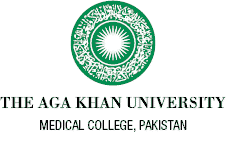The Vital Registry
55 dedicated staffers track the health of 0.65 million women and children across Karachi to ensure they get free care
‘Don’t tell anyone you are pregnant,’ women are told. ‘Buri nazar lagegi.’
In Pakistan we keep a pregnancy secret for the first trimester (3 months) out of fear. But this is an important time for the mother-to-be and she will need to see a doctor.
AKU’s Department of Paediatrics has 55 staffers who have been working door-to-door at 6 sites in Karachi to become a family’s first point-of-contact for healthcare in these cases. We provide free pregnancy and post-pregnancy care, transport at the time of delivery, free lab tests in these neighbourhoods where women don’t have proper access to hospitals. The team surveys a population of 650,000 and collects data on 100,000 married women of reproductive age and 75,000 under-5 year children once every quarter. This ongoing maternal and child surveillance system is called the Vital Registry and we have been running it since 2010.
The staff live and come from the same community and most of them have been working with us for more than five years. As a result nearly 65% of women come to us early in their pregnancy, which is a huge achievement. We have also been able to change mindsets and increase immunisation coverage over time. Our goal is to improve outreach so that we can capture more than 50% of pregnancies in the first trimester in communities who are hesitant to share this information.
These workers really are the backbone of our research work and on October 11, 2024 we got together to cut a cake and thank them for their immense contribution. “Projects always have their celebrations at the end,” said one staffer. “But since we are an ongoing activity, we never get this chance. This is the first time I have seen this.”
Ayesha Khalid is the Manager of the Vital Registry, and Dr. Zahra Hoodbhoy is the Lead. The VR captures longitudinal data on pregnancies and vital events such as births, deaths, immunizations, and migrations. It connects women in these communities to antenatal care, improved family planning, enhanced immunization coverage, and provides a foundation for other research projects.
Event October 11, 2024:
Appreciation for Data Collectors and Field staff


